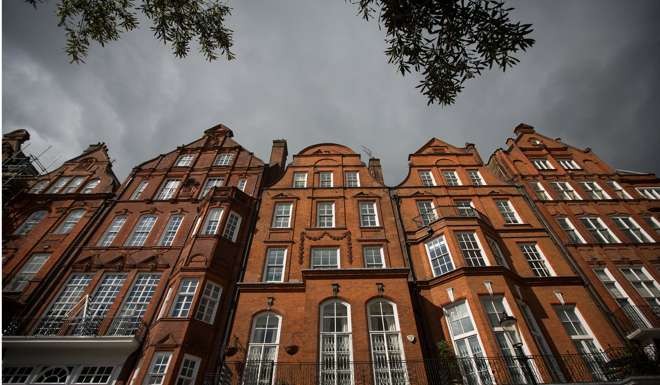Why Brexit could strengthen ties between China and Britain

With Brexit negotiations set to begin in April on the terms under Britain will leave the European Union, analysts say it is a good time for Britain to find a new ally – and the obvious partner is mainland China, the world’s second largest economy.
Six month after Britons voted to leave the European Union, the aftermath of the decision has seen the close government ties between Britain and China extend to the private sector with an influx of Chinese investors and tourists shopping in Britain, while many property buyers were attracted to Britain due to the sharp fall in the sterling which has lost 15 per cent of its value against the US dollar since the referendum.
“After Brexit, the UK will need to look more outside of Europe and China would be an important partner for Britain. The British government is very keen on building links with China,” Angus Knowles-Cutler, China services group chairman for Deloitte, told the South China Morning Post during an interview in his London office.
Deloitte has set up a team of 140 Putonghua-speaking Chinese staff in London to serve mainland investors who have increased their activity in Britain over the past six months.
“Overall, Chinese investors have been very positive about Brexit because the devaluation of the sterling has made assets cheaper. The UK government is very friendly towards Chinese investment,” he said.
The British Chancellor of the Exchequer, Philip Hammond, announced in November that the planned London-Shanghai stock link would proceed to the second stage where details of regulatory and other issues would be examined.
London Stock Exchange chief executive Xavier Rolet told the Post that the two bourse have been working on how to link up the markets despite the time zone difference. The two exchanges would each selects stocks and appoint stockbrokers to quote prices under a cross border trading system.
“The London-Shanghai stock connect scheme is considered an important project for both China and Britain. Both governments are very supportive of the link-up and there are some big Chinese banks and brokers interested in the scheme,” Rolet said.
Besides the stock connect plan there are also many Chinese companies seeking merger opportunities in Britain.
“Since the referendum, Chinese buyers continue to close deals here and, if anything, the UK looks a more stable bet than many other advanced economies. Any seller of assets should be thinking about how to include Chinese buyers in their sales processes,” Knowles-Cutler said.
According to Deloitte, Chinese dealmakers have completed 171 acquisitions across Europe so far this year with a disclosed deal value of US$88.4 billion. Activity has not slowed down because of the Brexit vote, with 11 deals completed in the UK since the referendum.
Private education, leisure and high value brands are what Chinese investors want to buy in Britain, while in Europe Chinese investors are looking to buy technology related companies in Germany and luxury brands and vineyards in France, Knowles-Cutler said.
“The Chinese government is keen on promoting companies to go international. Besides financial services and leisure, many Chinese buyers are watching private education and training, where Britain is seen as the leading western country. Meanwhile, many acquirers want to bring luxury brands and technology back to China, “ he said.

Louis Tse Ming-kwong, a director of VC Brokerage, said Brexit would see some Chinese companies cut down their investments in Britain – but for different reasons.
“After Brexit, Britain can no longer play the role as a gateway for Chinese companies to invest in Europe,” he said, adding that the British government is facing competition from European counterparts.
“We have seen many political leaders from France, Germany and Italy visit China in the past few months to secure trade deals and investment from China. The European countries want to use Brexit as an opportunity to increase their linkages with China. Britain is going to have tough competition ahead,” he said.
Tse explained that China would like to increase its linkages with Europe and Britain after US president-elect Donald Trump vowed to apply curbs to China trade.
“If there are more restrictions imposed by the US on Chinese investors and traders, then it may lead China to move more towards Britain and Europe,” he said.
Baker McKenzie UK partner Ross Denton said Chinese companies which operate an office in Britain in order to invest in Europe would need to change their strategy.
“The role for Britain to act as a gateway to the European continent is full of uncertainties after the Brexit vote. For many Chinese companies which now provide trade and services to European companies through their British offices, they should definitely consider setting up a footprint in one of the European Union countries,” Denton told the Post. “This would at least give them an open option in case Britain and the EU cannot agree on a good trade arrangement.”
The cheaper sterling isn’t benefiting all Chinese investors. Tim Gee, partner with Baker McKenzie UK, said British based manufacturing companies that need to import materials from around the world will see higher import costs as a result of the devaluation if they continue to keep their manufacturing in the UK.

“The capital markets and [renminbi] market in Britain is well developed which is not the case in other European countries. Five years ago, it was mainly state owned enterprises coming to invest in energy and infrastructure projects. But now, there are many private Chinese companies coming to Britain to buy businesses in entertainment, food and beverage, and football clubs,” Gee said.
Chinese individuals also added Britain to their travelling agendas as the cheaper sterling was a strong incentive for them to shop in Britain. There are record breaking numbers of mainland tourists flying into Heathrow airport while many of London’s new property projects are selling well thanks to Chinese investors.
However, Jinny Yan, chief China economist at ICBC Standard Bank, said it would be a challenge for British government to work out the visa restriction on how to keep these Chinese tourists to keep coming to Britain.
Chinese tourists would like to have a “grand tour” of many European countries, she said, so it would be important for the British government to negotiate a deal with the EU on issuance of a single visa that would allow mainland Chinese to travel around Britain and Europe after Brexit.
“Mainland tourists are eyeing the visa negotiations as part of the Brexit deal. If Britain cannot make it easy for mainlanders to obtain a visa to visit Britain and the European continent, it won’t be able to continue to attract mainland tourists,” she said.
